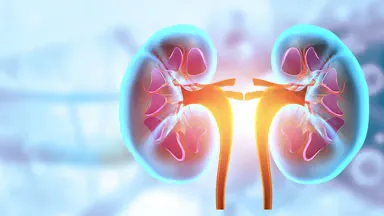
Otsuka Announces FDA Accelerated Approval of VOYXACT® for Proteinuria Reduction in Adults with Primary IgA Nephropathy
Otsuka Pharmaceutical Development & Commercialization, Inc., together with Otsuka Pharmaceutical Co., Ltd., announced that the U.S. Food and Drug Administration (FDA) has granted accelerated approval for VOYXACT® (sibeprenlimab-szsi). The treatment is now authorized for reducing proteinuria in adults with primary immunoglobulin A nephropathy (IgAN) who are considered at risk for disease progression. VOYXACT is administered as a self-injectable subcutaneous dose given once every four weeks, offering a convenient dosing regimen for eligible patients.
The approval is based on results from the ongoing VISIONARY Phase 3 clinical trial, in which VOYXACT demonstrated a significant and clinically meaningful reduction in proteinuria. Interim analysis showed a placebo-adjusted reduction of 51% (P<0.0001) at the nine-month mark among 320 participants, with patients receiving VOYXACT showing a 50% decline in proteinuria compared with a 2% reduction in the placebo group. VOYXACT is the first and only approved therapy that works by blocking A-Proliferation-Inducing Ligand (APRIL), a key driver in IgAN disease pathology.
Role of Proteinuria Reduction and Accelerated Approval Pathway
Proteinuria reduction is widely recognized as a surrogate marker that correlates with a delay in the progression to kidney failure. This marker is frequently used in IgAN clinical trials to support accelerated regulatory approvals. While the approval of VOYXACT is primarily based on this endpoint, it has not yet been fully established whether the therapy slows long-term kidney function decline.
As part of the accelerated approval process, continued authorization of this indication will depend on Otsuka’s submission of confirmatory evidence. The confirmatory portion of the VISIONARY Phase 3 trial is ongoing and will evaluate the therapy’s effect on estimated glomerular filtration rate (eGFR) decline over 24 months. These long-term results are expected in early 2026 and are intended to support full FDA approval.
A New Targeted Approach for IgAN
“IgA nephropathy is a complex disease that urgently requires new targeted treatments,” said John Kraus, M.D., Ph.D., executive vice president and chief medical officer at Otsuka. “The approval of VOYXACT offers a meaningful advancement for patients diagnosed with IgAN who may be facing disease progression. With once-monthly dosing, a strong efficacy profile, and a clear mechanism that targets the disease pathway, VOYXACT provides a promising new option for eligible patients.”
VOYXACT targets and blocks APRIL, a molecule involved in multiple steps of the IgAN disease process. APRIL stimulates the production of galactose-deficient IgA1 (Gd-IgA1)—a protein believed to trigger autoimmune reactions that damage the kidneys. By inhibiting APRIL, VOYXACT reduces serum Gd-IgA1 levels, directly addressing an underlying mechanism of IgAN rather than only treating symptoms.
Dr. Dana Rizk, professor of medicine at the University of Alabama at Birmingham and a lead investigator in the VISIONARY study, reinforced the importance of this scientific breakthrough. “VOYXACT is the first approved therapy that specifically blocks APRIL, which plays a fundamental role in the IgAN disease pathway. These results and the treatment’s mechanism of action provide optimism for patients facing progressive kidney damage.”
Support from the Patient Advocacy Community
The FDA approval has also been welcomed by patient advocacy organizations. The IgA Nephropathy Foundation issued a statement applauding the milestone, emphasizing how essential new therapeutic options are for patients living with this chronic condition.
“We’re thrilled about VOYXACT’s accelerated approval,” said Bonnie and Ed Schneider, co-founders of the foundation. “IgAN patients need more treatment options, and today’s news brings real hope. We extend our gratitude to the clinical trial participants, the researchers, and everyone involved in advancing this therapy.”
Otsuka noted its continued commitment to supporting the IgAN patient community, including through partnerships with advocacy groups focused on awareness, education, and access.
Overview of Clinical Evidence Supporting Approval
The VISIONARY Phase 3 trial is a multicenter, randomized, double-blind, placebo-controlled study involving 510 adult patients with primary IgAN. All participants were on standard-of-care therapy, which included maximally tolerated angiotensin-converting enzyme (ACE) inhibitors or angiotensin receptor blockers (ARBs), with or without sodium-glucose cotransporter-2 (SGLT2) inhibitors.
To participate in the study, patients required a biopsy-confirmed diagnosis of IgAN and met additional criteria, including:
- Urine protein-to-creatinine ratio (uPCR) ≥ 0.75 g/g or ≥ 1 g/day proteinuria
- Baseline eGFR ≥ 30 mL/min/1.73 m²
- A stable supportive therapy regimen for at least three months before screening
Participants were randomized to receive either VOYXACT or placebo every four weeks while continuing background supportive therapy.
The primary endpoint was the percentage change in 24-hour urine protein-to-creatinine ratio at month nine compared with baseline. Secondary endpoints include eGFR slope over 24 months, which will be reported once the trial is completed.
Safety and Tolerability
Interim safety results indicated that VOYXACT was generally well tolerated. The most frequently reported adverse events (occurring in at least 10% of patients and at a higher rate than in the placebo group) were infections and injection-site reactions.
- Infections: 49% with VOYXACT vs. 45% with placebo
- Injection-site reactions: 24% with VOYXACT vs. 23% with placebo
Upper respiratory tract infections were the most common type of infection, and injection-site erythema was the most common localized reaction. Most adverse events were categorized as mild or moderate and did not require treatment interruption.
A Potential Shift in IgAN Treatment

With this accelerated approval, VOYXACT becomes a key addition to available treatment strategies for IgAN. The therapy’s novel mechanism, patient-friendly dosing, and meaningful clinical outcomes suggest it may play an important role for patients experiencing persistent proteinuria despite standard treatments.
As the medical community awaits confirmatory data, VOYXACT represents a promising advancement toward modifying disease pathways rather than managing symptoms alone. If long-term trial results confirm its durability and ability to slow eGFR decline, the treatment may become foundational in future IgAN care.
About IgAN
IgAN is a progressive, immune-mediated, chronic kidney disease that typically manifests in adults aged 20-40 years and can lead to end-stage kidney disease (ESKD) over the lifetime of most patients7,8,9. IgAN is characterized by the accumulation of Gd-IgA1 complexes in the kidneys. IgAN can lead to progressive loss of kidney function and, eventually, ESKD, imposing a significant burden on patients8. Despite supportive care, there is an unmet need for treatments that address the root causes of the condition4. Continued research in the disease remains crucial to uncovering opportunities for advancement in our understanding and treatment of patients4.
About VOYXACT® (sibeprenlimab-szsi)
VOYXACT (sibeprenlimab-szsi) was designed and engineered by Visterra, Inc., a wholly owned subsidiary of Otsuka. Pre-clinical and early-stage trials of sibeprenlimab were also conducted by Visterra. VOYXACT (sibeprenlimab-szsi) is a humanized monoclonal antibody that binds to and blocks APRIL, which plays a key role in the 4-hit process of IgAN pathogenesis and is an important initiating and sustaining factor in IgAN progression by promoting the production of pathogenic galactose-deficient IgA1 (Gd-IgA1)2,5. Inhibition of APRIL results in reduced levels of serum galactose-deficient IgA1 (Gd-IgA1), which is implicated in the pathogenesis of IgAN. VOYXACT is a self-administered, subcutaneous injection dosed every four weeks.
Source Link: https://www.businesswire.com/





